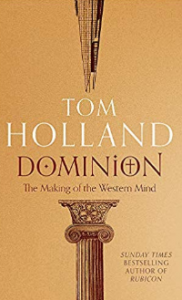
Christianity: the most influential legacy of the ancient world


German philosopher, Ludwig Feuerbach gave an immortal reply to the followers that modern life owes much to its Christian prototype, who asked if Christians had incubated some early version of modern ideas that eventually needed toppling Christianity itself to come to their own? Despite opposition to paganism, Christianity had to be smashed as the last form of idolatry the worship of a human fiction rather than the embrace of the full possibilities and powers of human being themselves.
Tome Holland reveals how Christianity threw out antiquity. From Athens to Abbey Road, Moses to Merkel Holland tells “the greatest story ever told” not merely Jesus’s life and death but also as Christianity’s conquest of European society. The truth is many visions beginning in the so-called axial age – Buddhism and Hinduism and Judaism before Christianity like Islam a few centuries afterwards – succeeded aristocratic worldliness and martial gallantry as the high ends of life.
His illustration of the conquest of the west by Christianity and explaining everything and nothing.” There were many gateways, many road, the only constant was that they all had their origins in Christendom” writes Holland.
Holland writes further “ There is nothing quite Christian as summon to bring the world form darkness into light except eventually what that meant rejections of the religion’s supernatural tenets and most if its moral premises, from the idea that charity suffices for the poor, or that the ultimate love has to be for God ( or accompany sex for procreation), or that women must serve subordinately.
Feuerbach’s claim that Christianity “the religion for leaving religion behind”, but it was Christianity that gave opportunities to the kingdom to revolutionaries who made it a very different place.
Dominion: The Making of the Western Mind by Tom Holland, Little Brown, £19.99 Basic Books $32, 624 pages.
